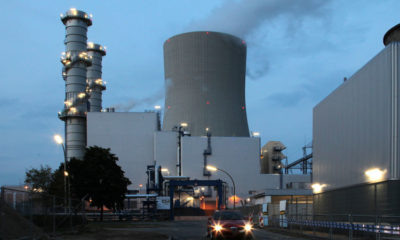- Nuclear Experts Challenges African Countries on Nuclear Power Development
Nuclear technology experts on Friday urged African countries to accelerate development of Nuclear Power Plants(NPP) and other technologies to reduce energy deficit and speed up development of the continent.
The experts made the call in an interview with the News Agency of Nigerian (NAN) in Tomsk, Russia.
They said it was cheery, African countries were looking in the direction of nuclear power production, giving their various agreements with Russian atomic agency ROSATOM to construct NPP and nuclear research centers.
The experts said the growing acceptability and utilisation of nuclear technologies especially for electricity supply would ultimately help decrease electricity shortage in the continent.
According to them the utilisation of nuclear technology in electricity sector, health, aviation, and other sectors would further help accelerate development of the continent.
NAN recalls that Nigeria started developing its peaceful nuclear programme a decade ago and Russian atomic agency ROSATOM has been working with Nigeria for roughly half of this time.
A great deal has already been done in terms of the legal framework and educating specialists, both of which are part of the nuclear infrastructure development programme.
The two countries started their partnership in nuclear power development in 2009, by executing an intergovernmental agreement on cooperation in the field of the peaceful usage of nuclear technologies.
On Oct. 30, 2017, Russia and Nigeria again signed project development agreements on construction and operation of a Nuclear Power Plant (NPP) and a Research Centre housing a multi-purpose nuclear research reactor on the territory of Federal Republic of Nigeria.
Zambia on the other hand is steadily advancing efforts at actualising its nuclear energy goals .
Zambia had also in 2017, signed an intergovernmental agreement with Russia via ROSATOM on the construction and operation of nuclear power center
Lately, African countries like Ghana, Kenya, Rwanda and Uganda have been embracing prospects of adopting nuclear power plant.
Recently, Egypt also signed a deal with ROSATOM for the construction of its maiden NPP with plans to inaugurate the first unit of the NPP in 2026.
South-Africa remained the only country in Africa with an operational NPP that produces the cheapest power in the country.
To this end, Head, Laboratory for Radioactive Substances and Technology,Tomsk Polytechnic University, Prof Vladimir Golovkov said:
“ I think that, now atomic energy is one of the main possibility of overcoming the distance in the absence of adequate electricity, with minimal effort.
“There is a possibility to create, not only grid atomic power plant but a small power plant to create energy that will be distributed all over Africa.
“And so the look of Africa in the direction of atomic energy is very promising.“
Golovkov said the use of nuclear energy would provide faster development of African continent, given the importance of electricity to development.
On fear for nuclear energy waste, Golovkov said :“You know that each technology not only has its advantages, it also has its disadvantages. For example, some renewable technology leads to environment pollution and pollution of water etc.
“But atomic energy is free of danger of pollution, it is absolutely clean and clear from the point of view of environment pollution.
“Russia now has had great experience in exploiting of atomic power stations and using of atomic energy is not so dangerous, not so dangerous from the point of pollution, from the point of affecting people.
“So I think that usually atomic energy has great potential and the fear of using atomic energy is mainly in our minds than the reality. “
Dr Vera Verkhoturova, Director of masters’ programme, nuclear power engineering, and installations, Tomsk Polytechnic University said the number of students from Africa undertaking courses in nuclear technology engineering was on the increase yearly.
She said the students were choosing research courses in nuclear technology, ranging from nuclear safety security , non proliferation and research in reactor.
This, Verkhoturova said indicated that the demand for development of nuclear industry in Africa was very high, adding that the education of Africans on nuclear technology was increasing at a fast paste.
“Judging by high rate of students developing competence here in nuclear education, I can say that Africa is moving on faster and faster to this target of developing nuclear infrastructures in these countries.“
She said given the expensive nature of training nuclear engineers, the university was collaborating with industrial agencies like ROSATOM to help support development of its international nuclear engineering programmes.
“ROSATOM helps us to organise internships for international students, they help us provide the international students with scholarships which means that African students can start the programmes for free if they are qualified.
“Because nuclear education is very expensive in the world, together with ROSATOM we are also organising different short term programmes for already working staff of nuclear regulatory bodies of countries partnering with ROSATOM.
Verkhoturova, said about 20 African students had been registered at all levels of nuclear education in the university, adding that more students would enroll in the university’s nuclear engineering programme in the coming year.


 Forex3 weeks ago
Forex3 weeks ago


 Naira2 weeks ago
Naira2 weeks ago
 Billionaire Watch2 weeks ago
Billionaire Watch2 weeks ago




 Naira2 weeks ago
Naira2 weeks ago




 Naira2 weeks ago
Naira2 weeks ago




 Naira1 week ago
Naira1 week ago




 Naira4 weeks ago
Naira4 weeks ago




 Naira3 weeks ago
Naira3 weeks ago













